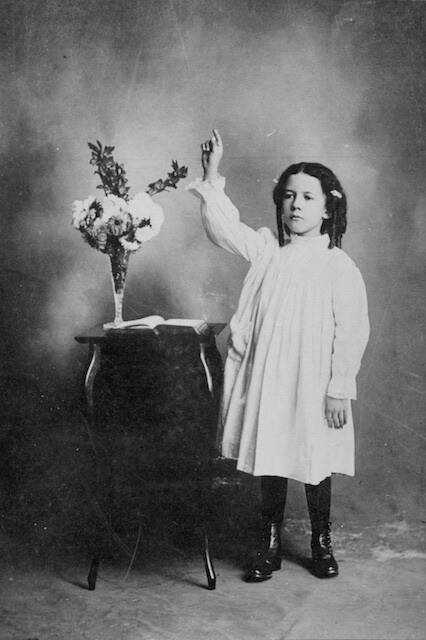President Obama & Marilynne Robinson: A Conversation in Iowa
The New York Review of Books
2015-11-05
President Barack Obama
Marilynne Robinson

President Obama and Marilynne Robinson at the Iowa State Library, Des Moines, September 2015 (Pete Souza/White House) |
The following conversation between President Obama and Marilynne Robinson was conducted in Des Moines, Iowa, on September 14. An audio recording of it can be heard at itunes.com/nybooks. —The Editors
The President: Marilynne, it’s wonderful to see you. And as I said as we were driving over here, this is an experiment, because typically when I come to a place like Des Moines, I immediately am rushed over to some political event and I make a speech, or I have a town hall, or I go see some factory and have wonderful conversations with people. But it’s very planned out and scripted. And typically, we’re trying to drive a very particular message that day about education or about manufacturing.
But one of the things that I don’t get a chance to do as often as I’d like is just to have a conversation with somebody who I enjoy and I’m interested in; to hear from them and have a conversation with them about some of the broader cultural forces that shape our democracy and shape our ideas, and shape how we feel about citizenship and the direction that the country should be going in.
And so we had this idea that why don’t I just have a conversation with somebody I really like and see how it turns out. And you were first in the queue, because—
Marilynne Robinson: Thank you very much.
The President: Well, as you know—I’ve told you this—I love your books. Some listeners may not have read your work before, which is good, because hopefully they’ll go out and buy your books after this conversation.
I first picked up Gilead, one of your most wonderful books, here in Iowa. Because I was campaigning at the time, and there’s a lot of downtime when you’re driving between towns and when you get home late from campaigning. And you and I, therefore, have an Iowa connection, because Gilead is actually set here in Iowa…
…Robinson: And also, one of the things that doesn’t take into account is that local governments can be great systems of oppression. And it’s a wonderful thing to have a national government that can intervene in the name of national values.
The President: Well, that was the lesson of the entire movement to abolish slavery and the civil rights movement. And that’s one thing—I mean, I do think that one of the things we haven’t talked about that does become the fault line around which the “us” and “them” formula rears its head is the fault line of race. And even on something like schools that you just discussed, part of the challenge is that the school systems we have are wonderful, except for a handful of schools that are predominantly minority that are terrible.
Our systems for maintaining the peace and our criminal justice systems generally work, except for this huge swath of the population that is incarcerated at rates that are unprecedented in world history.
And when you are thinking about American democracy or, for that matter, Christianity in your writings, how much does that issue of “the other” come up and how do you think about that? I know at least in Gilead that factors into one major character, trying to figure out how he can love somebody in the Fifties that doesn’t look like him.
Robinson: Iowa never had laws against interracial marriage. Only Iowa and Maine never had [them]—
The President: Those were the only two.
Robinson: Yes. And [Ulysses S.] Grant really did call [Iowa] the shining star of radicalism, and so on. We never had segregated schools; they were illegal from before, while it was still a territory, and so on. And these laws never changed and they became the basis for the marriage equality ruling that the Supreme Court here [in Iowa] did.
So that whole stream of the culture never changed. And at the same time, the felt experience of the culture was not aligned with the liberal tradition [of the] culture. And so in that book, Jack has every right to think he can come to Iowa, and yet what he finds makes him frightened even to raise the question…
Read the entire conversation here. Read part 2 of the conversation here.


